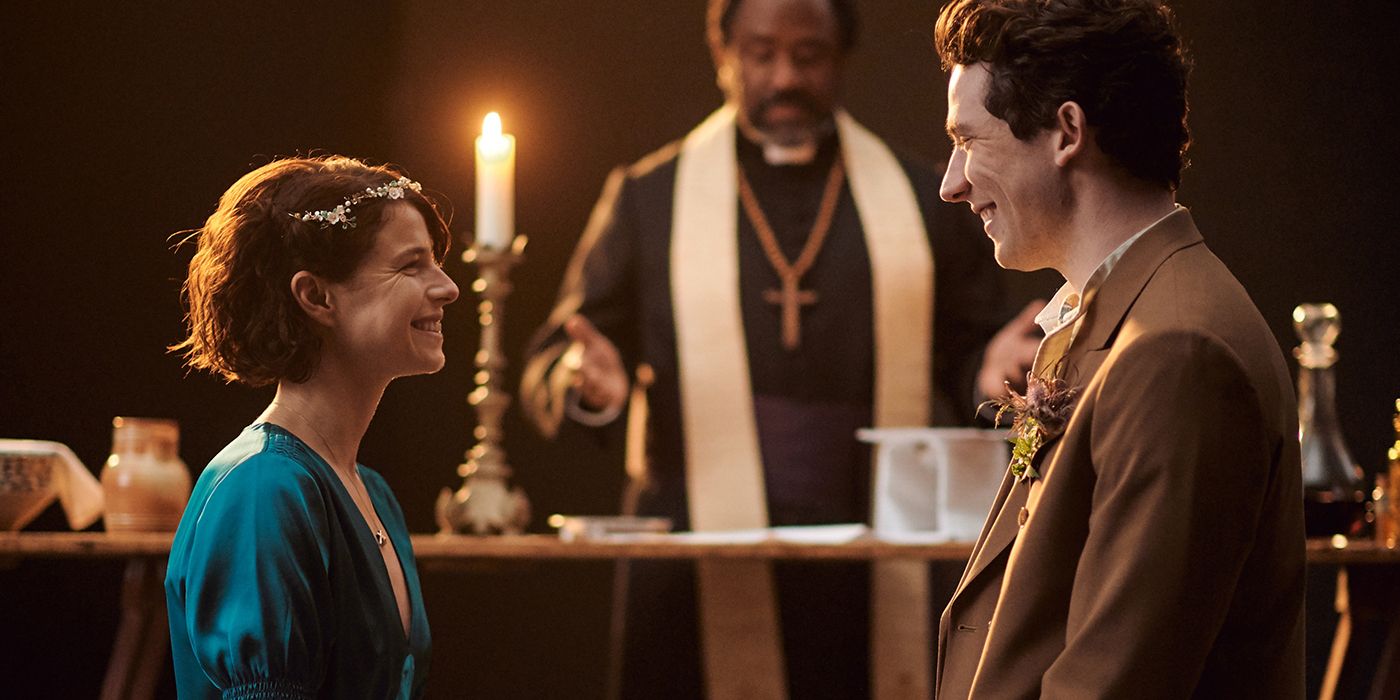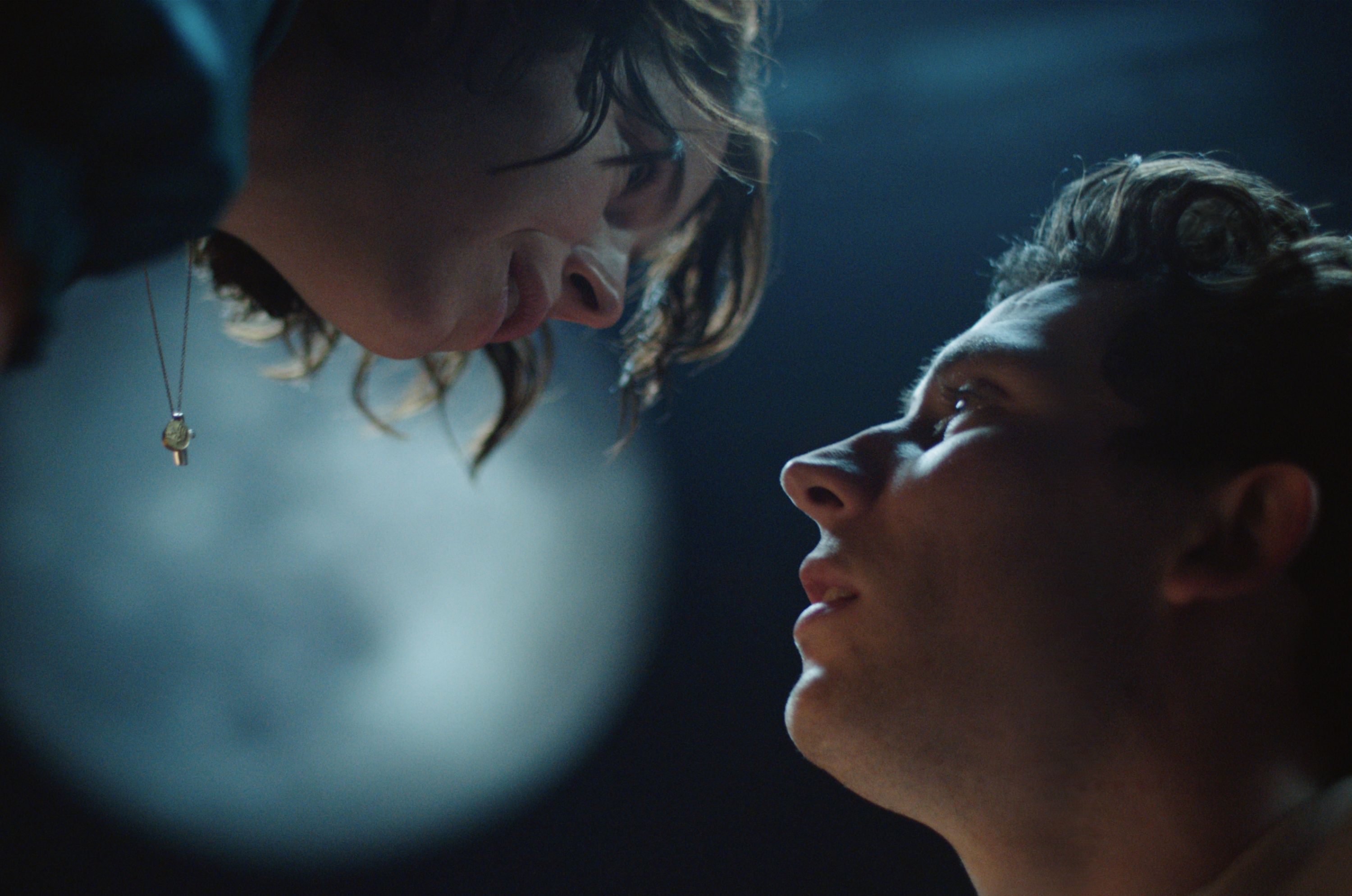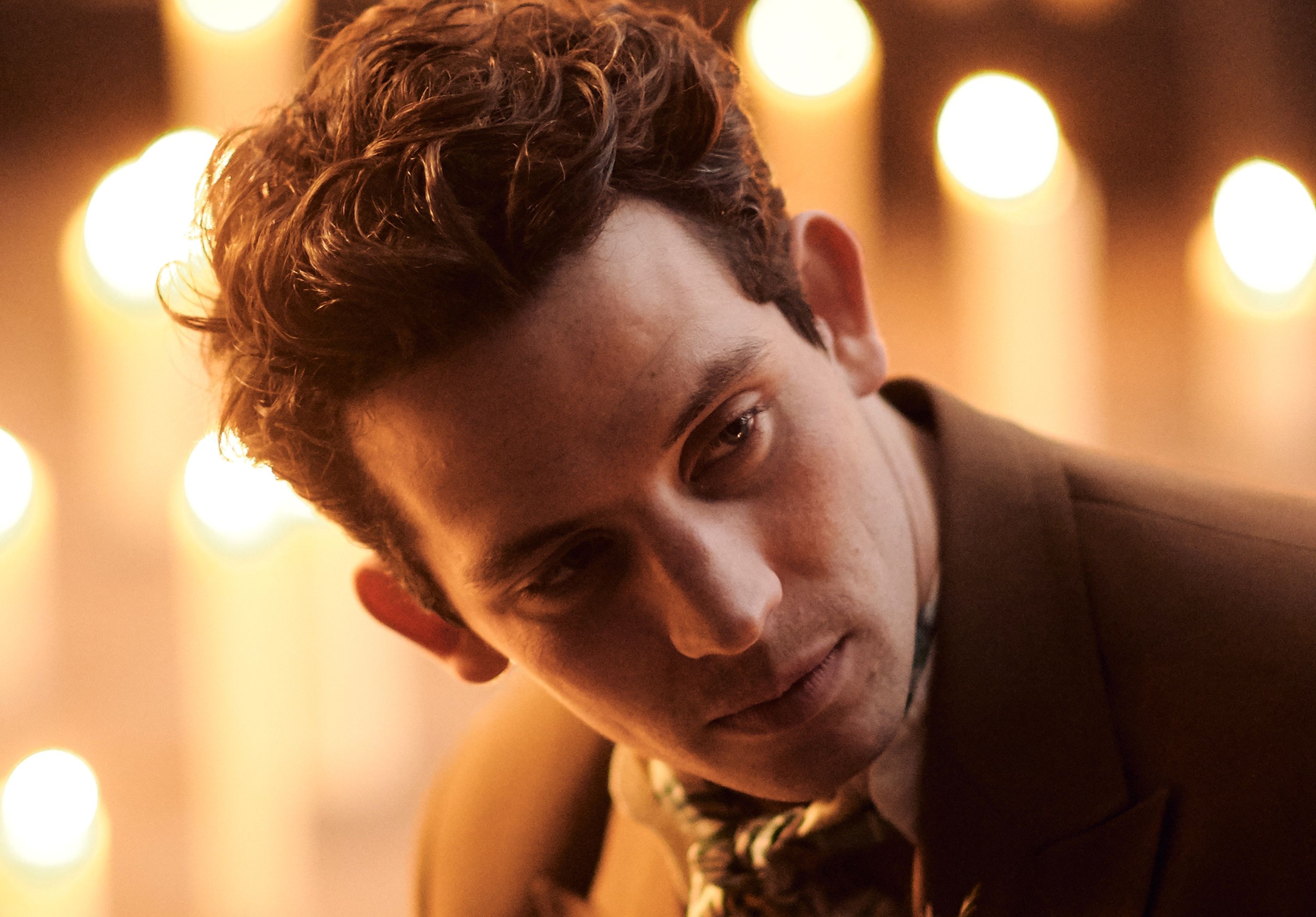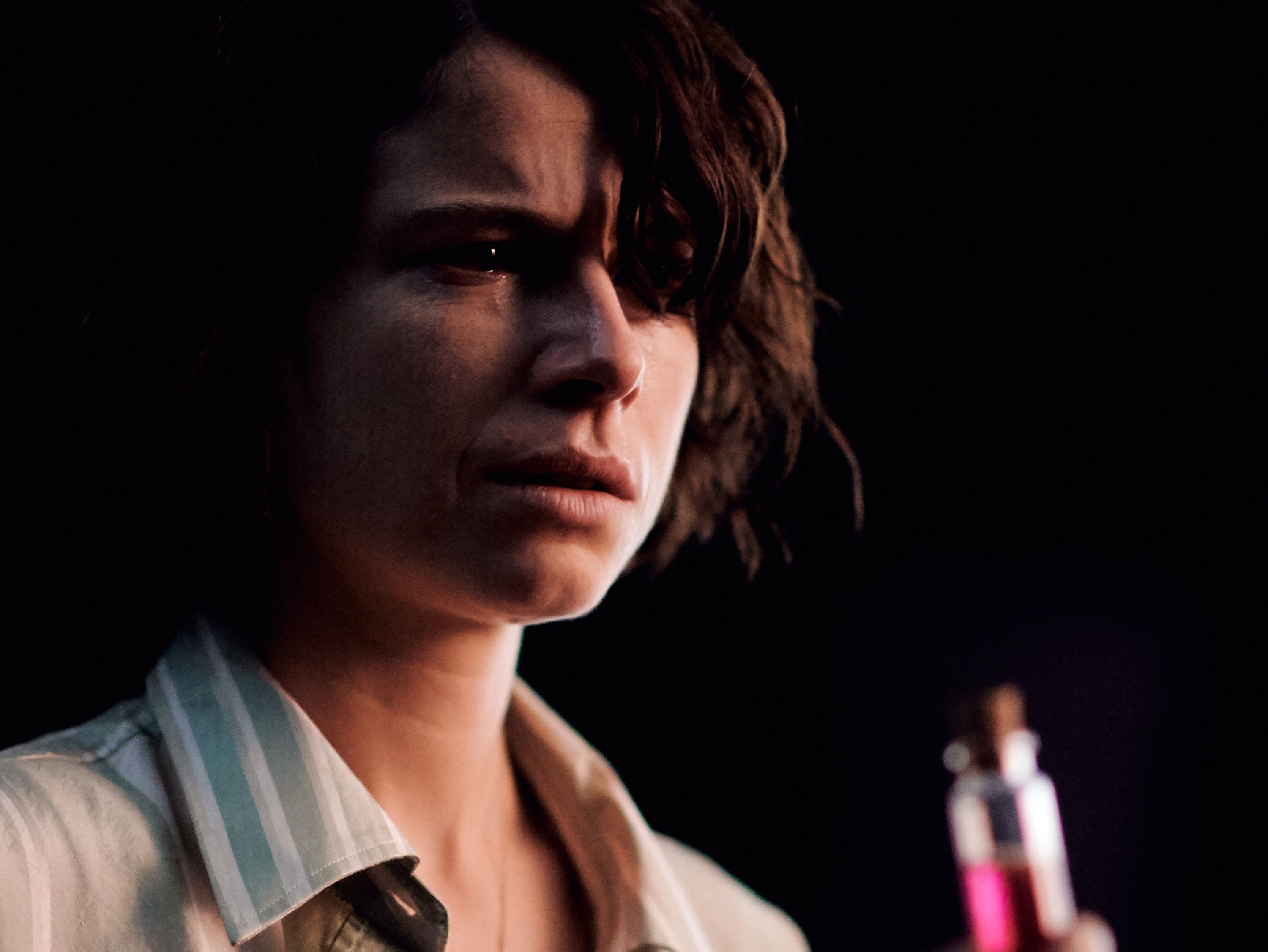Due to COVID and the shutdown of live theater performances, Great Performances: Romeo & Juliet takes a new approach to William Shakespeare’s masterpiece, as a company of actors move throughout the shuttered National Theatre and its various backstage spaces to give a contemporary translation of the timeless tale of two young lovers who just want their love to conquer hate. The hybrid of theater and film gives the material an intimacy, as you follow Romeo (Josh O’Connor) and Juliet (Jessie Buckley) on their journey from first love to heartbreak to tragedy.
During this interview with Collider, co-stars O’Connor and Buckley talked about taking on material that is always reinventing itself, talking themselves into taking on such famous roles, why they wanted to work together, how they approached the material, and what’s up next for each of them.
Collider: Were you guys surprised at how much you could actually do something different with material that’s been around for so long?
JESSIE BUCKLEY: Yeah. I guess you never really know what it’s gonna become when you’re doing it. You’re just figuring it out. We were figuring it out as we were going along, especially because we didn’t expect to be doing it the way we were doing it. It was magic. Here we were, in the National Theatre on the Lyttelton stage, and a theater had become a film studio. These two worlds were meeting for the first time in this place, which has always told stories. It was brilliant.
JOSH O’CONNOR: It inevitably reinvents itself because with those characters, people come in and put their own personal stuff on them. I always find that I think I know a play by Shakespeare, like I know Richard II from back to front and I know how it works and what he’s going through, and then you go and see it and you’re like, “This is like a new play.” Inevitably, it reinvents itself, but what’s so nice about this that, yes, it was always gonna reinvent itself, but it really takes a spin on it, by being in a theater and being on the stage while making a film. That was a joy. It was great.
Before things ended up turning out the way that it did, when the project originally came to you, did you have to stop and think about taking on such a famous and well-known role?
O’CONNOR: Yeah, we both did.
How did you talk yourself into actually doing it, in that case?
BUCKLEY: You talk yourself into doing it because you got to do it with one of your best mates. Honestly, I wouldn’t have wanted to do it with anybody else. That was it for me. And I wanted to do something about love. So, love and Josh were the two things for me.
O’CONNOR: I’d say the opposite. No, just kidding. For me, it was the same. When I first met (director) Simon [Godwin] about it, I knew Simon a bit and he was like, “I’m gonna do Romeo and Juliet.” To be honest, all I could think was, “I can’t think of anything worse.” The idea of playing Romeo, I thought I’d do it badly. I’ve seen friends do it so brilliantly that I thought there was no way I could do it. But Jessie and I were trying to find something to do together, so I thought, “It would be pretty cool to do with Jessie.” There’s a heritage about actors having played any of those Shakespeare roles. There’s something really beautiful about the fact that there are hundreds of actors or thousands of actors behind us, who have played these roles, and there will be thousands of actors after us that will play these roles. There’s something nice about being a part of the history. So, when Simon asked me, I was like, “I’m 30 years old. Maybe this is my last chance.” To tell that story, that’s one of the greatest stories ever told, and to do that with your great friend, was a total treat.
Had either of you ever tried to do a production of Romeo and Juliet, before this one?
O’CONNOR: For me, it was the first time.
BUCKLEY: I’d done bits of it at college, but at drama school, I’d never done it as a full thing.
One of the things that I really loved about this is the fact that you guys aren’t pretending to be very young teenagers. They feel like characters who have lived enough to know and understand love, and whether you are actually playing teenagers or not, you’re not focused on their age. Did you ever have a conversation about how you wanted to approach that? Was it important to you that you not try to play them too young?
O’CONNOR: I keep using the word lazy, but that’s not quite the right word. I sometimes think that the youthfulness of Romeo and Juliet, at 14 or 15, makes you a little lazy in telling, to me, the more interesting stories of love in this life. What I mean by that is, if you’ve got Romeo and Juliet, who are 14 years old, and they fall in love for the very first time, it’s quite easy to answer a lot of the questions that come along the way of the play. How do they not immediately go, “Danger, danger, this will cause so much trouble”? And you go, “Well, because they’re young and naive.” And then you’re like, “Why do they feel willing to die for each other?” “Because they’re young and they feel like life is just what it is and they’re naive.” Actually, sometimes that’s just too easy. And so, putting a barrier and going, “You can’t answer that question with that, you have to find an alternative,” was really liberating. What you then find are questions like, “Why do they feel that they have to have this love? Why do they need this love? Why do they die for each other?” There’s spirituality, there’s the fact that, as far as they’re concerned, they don’t believe that life ends at death, and there’s the idea that death isn’t a tragedy, but death is hope and death represents love as much as life. You start to delve into deeper answers, which is better, or more interesting, I suppose.
As much as I love the sound of Shakespeare’s dialogue, I also love that there are so many beautiful moments in this that have no dialogue. As actors, how did it feel to get to explore so much emotion while not speaking with words?
BUCKLEY: It was great. Maybe doing it on film afforded us liberty to explore that more. It was the moments in between words, which were fused, just as much as the words themselves. It’s a very physical world. People are interacting with each other in a violent way and in an emotionally violent way. We had two incredible movement coaches who were with us from the get-go. Life doesn’t just live within a word. There’s so much of it. It was great to run around and be as human as possible. That hedonism and that euphoric firework that happens when you fall in love is as much when there’s nothing said, as it is when there are things said.
O’CONNOR: When people describe an anger or violence, there’s this red haze that comes in front of your eyes. And then, there’s a yellow golden haze that comes in front of your eyes with love. What Shakespeare can do brilliantly is describe emotions and put into words stuff that is seemingly impossible to put into words. Shakespeare doing that is acknowledging that there are certain things you cannot put into words. There are things that you can’t represent with just words, even if you’re William Shakespeare. For instance, with the first sonnet, one of my favorite moments making the film was this moment where Jessie and I come out of the masked ball and we grab each other, we’re back in the rehearsal room, we’re chasing each other around, and it’s love and laughter and joy. That, to me, is an addition to the words. It’s like a side dish. It’s great. It just helps it all out.
Do you have any tricks for not only remembering all of that dialogue, but to also have it sound very natural?
BUCKLEY: You employee an amazing vocal coach and you’ve gotta understand what you’re trying to say. At the beginning of rehearsals, Simon, our director, did this thing where we literally went through every single line in the script and we shared with the whole company about what we thought, in modern language, it was. You’ve gotta understand what it is you’re saying and why you’re saying it.
Josh, would you say it was more daunting to take on such a famous character as Romeo, or to take on playing Prince Charles in The Crown, especially when he’s a real live person?
O’CONNOR: I think Romeo is definitely more daunting. I didn’t really see the real Prince Charles as having, in a weird way, any relationship to my character Prince Charles. The Crown is total fiction, obviously, so it feels very distant to me. Romeo is far more daunting. Whilst Romeo doesn’t exist and isn’t there to tell me, “Oh, don’t do that,” I have 10 friends who’ve played Romeo. I’ve seen five of them and they’ve all been amazing, and I have to deal with them going, “Why is he saying it like that? He was rubbish.” But if they say that, I know they’re not my friends.
Jessie, would you say the Juliet is the most daunting role that you’ve taken on, or is there another one of your characters that felt more daunting?
BUCKLEY: Oh, they’re all daunting. None of them are not daunting. It’s always terrifying, especially if you love something before you start it. I was terrified going into this because I loved it and I loved her. It’s always a bit scary.
Do you guys know what you’re going to do next?
O’CONNOR: I’m doing an indie film set in Ireland, called Provision, that’s very different.
BUCKLEY: I’m doing a film called Men, which Alex Garland is directing.
What excites you about Alex Garland, as a filmmaker?
BUCKLEY: Oh, God, so much. It’s so exciting when you get to work with people who are visual auteurs. He’s a bloody lovely man and he really respects the process. He’s curious about it and he respects every single person that he works with on set. He feels invested in and is collaborative with everybody. There is a collaboration. I can’t do anything without other people, so when you’re walking onto set where you’ve all shaken hands and decided to make something together, and it’s being led by somebody who’s created that atmosphere and who also has a very strong visual idea and is trying to say something about the world, it’s so exciting that it just makes you, as an artist, want to dig as deep as you can, for fear that you won’t experience the thing that he’s offering.
You guys talked about looking for something to do together before doing this. Now that you’ve done this together, would you like to try to work together again?
O’CONNOR: We’re actively looking for something, yeah.
Now that you’ve performed and done Romeo and Juliet, will you ever look at it the same again? Does it transform Shakespeare for you, when you tackle it yourself?
O’CONNOR: Yeah, it becomes personal. I really like Romeo. Certainly now, after this experience, it will always hold a special place in my heart. But every production is fresh and new and makes you re-see things that you hadn’t seen before. That’s the joy of it.
Great Performances: Romeo and Juliet airs on PBS on April 23rd.




